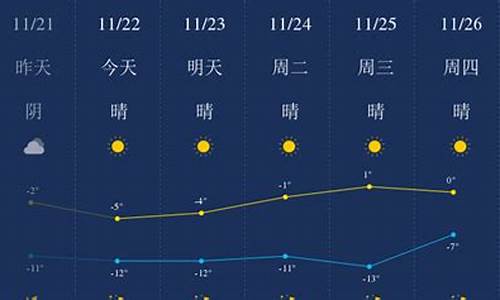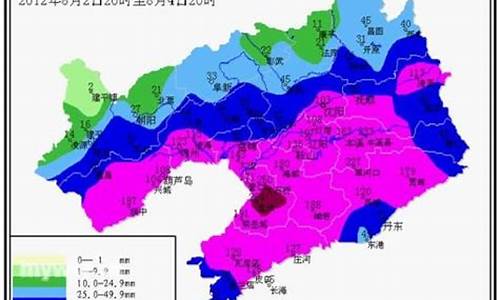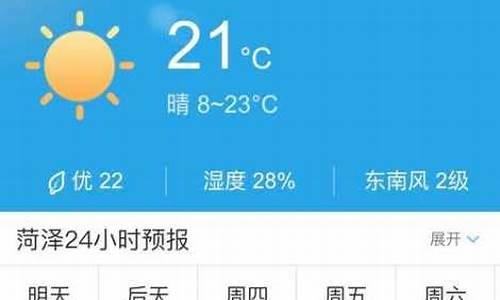五年级英语一周天气表格_英语五天天气
1.求一份人教版五年级下册英语的知识点
2.求人教版的五年级下册英语单词~~~~~(书最后面的)
3.人教版小学五年级英语下册第十单元单词怎么读

说到记忆单词,这可是同学们普遍感到头疼的事。尤其是现行的新教材词汇量扩大了不少,记忆的难度就更大了。记不住单词,学好英语就无从谈起。所以突破单词这一难关非常关键。记忆单词的方法很多。
1.按读音记忆单词。实际上在你看单词时就要顺便看一眼音标,掌握字母及字母组合的读音规律。将所有符合规则的单词归类记忆。如:
①按开、闭音节记忆,掌握元音字母的读音。Bag: cat, map, sad; cake: name, plane,date;desk: next, set, step, let;
these: Chinese, Japanese;hit: big, ship, this, kill;like: side, nice, kite,mine ;not: dog, hot, stop, got;nose:
note, those, close, hole ;bus: nut, cup, rubber,dust;use: huge等。
②按字母组合记忆,掌握元音字母组合和辅音字母组合的读音,如:bee, meet, see, keep等等,ee字母组合读/i:/;chair, ch字母组合读/tS / 。
2.分音节记忆。单词不论长短,如果从第一个字母背到最后一个字母,是很难记忆的。如:information,共11个字母组成,可以把它“大卸八块”,分音节记忆就会很容易。in-for-ma-tion
3.音、形、义结合法
背单词将它的音、形、义结合起来,记忆牢固,速度也快。读准它的音,看好它的形,明白它的义,尤其是一词多义,记忆时要提高分辨率。如:orange是个兼类词,作可数名词意思是“桔子”;作形容词意思是“桔色的”;作不可数名词意思是“桔汁”。可读音只有一个/'orindJ/,词形一样。这样有意识地去分辨记忆就容易多了。
4.联想记忆来记单词。它主要包括以下几种形式:
① 对比联想记忆:
将同义词:study/learn(学习),big/large/great(大的),look/see/watch(看),hear/listen(听),good/fine/well/nice(好的),door/gate(门),like/love/enjoy(喜欢)等。
反义词: 如:big(大) →small(小),dear(昂贵) →cheap(便宜),hot (热) →cold(冷),slow(慢) →quick/fast(快),thin(瘦)→(胖),in front of(在……前面) →behind(在……后面),south(南) →north(北)等。
同音词: too(也) →two(二),for(为) →four(四),right(正确) → write(写),by(乘) →buy(买),blue(蓝色的) →blew(blow的过去式),sea(海洋) →see(看见),son(儿子)→sun(太阳), whether(是否)→weather(天气)
词形相近比较:want(想要)→wait(等待),read(读)→ready(准备好的),wall(墙)→walk(走),quite(很)→quiet(安静的),present(礼物)→parent(父母)等放到一起对比记忆。
同时还可以联想到一些义同形不同的词。如:由cost联想到pay,take和spend,并将这些意义相对、相同或读音相同的词的用法进行比较。
②归类联想记忆:把所学的单词按照不同的范畴分门别类, 将所学单词合理归类。
A.按词性归类。如:名词driver, name…,动词be, he, drive…,形容词careful, hy…,副词carefully, hily…,介词in, on at…,代词he, she, him, her…等。
B.按用途归类。如:服装类coat, shirt, skirt, sweater, shoes…,食品类cake, rice, dumpling, noodle…,运动类 football, basketball, race, sport…,交通类traffic, bus, car, taxi, train, plane, ship…,月份January, February, March, April…,星期Monday, Tuesday,Wednesday,Thursday, Friday, Saturday, Sunday和节日等。比如学习Christmas一词时, 就联想到Children's Day,Women's Day,Teachers’Day,Tree—Planting Day,Mid—autumn Festival,National Day, New Year’s Day, Spring Festival等一系列的节日名词。
③构词联想记忆:利用同根词(词形转换)联想记忆,注意词性。英语单词中有许多词具有一词多性的特点,如open既可作动词用,又可作形容词用。另一些词具有同一个词根,如单词care既具备名词性质又具备动词性质,它的同根词有careful,carefully,careless,
carelessly,对于这些词,我们应重点记忆。再如:north→
northern,noise→noisy→noisily等。利用合成词联想记忆,如学到moonlight这个词就想到它是由moon和light这两个词合成的;classroom是由class与room合成的。
④搭配联想记忆:以一个单词为中心搭配不同的词而构成新的短语。这种语言现象非常多,如能经常使用此法则会牢固地记住所学的短语。如:
1)含有get的短语有:get ready for 为…… 做准备,get up 起 床,get on, with 与人相处,get down下来, get dressed穿衣服,get back取回;回来,got on 上车,get off下车,get to 到达,get out of从……出来, get lost迷路。
2)含go的短语有:go swimming去游泳, goes on继续;持续, go to school去上学, go to bed上床睡觉, goes home回家, go out for a walk出去散步, go away走开, goes down降落,go back回去, go on with继续做某事
3) 含look的短语有:look at 看, 1ook after照看;照顾, look the same 看起来很像,1ook like看起来像, 1ook for寻找, 1ook up(在词典、参考书中)查找, 1ook over (医生)检查, 1ook around (round)环顾四周
4)含make的短语有:make room for 为……. 让地方, make sentences with 用……造句, made a face or made faces 做鬼脸, be made in在…制造 , be made of由…制成, make tea沏茶, make friends with 与……交朋友, make up编出, made a mistake出差错, make sure确保,确信, make a noise吵闹
5)含take的短语有:take your time 不急;慢慢来, take, medicine 吃药;服药, take a walk 散步,take, exercise 运动, take turns 轮流;替换, take care of 照料;照顾, take, out of 带走;拿出, taking off 脱掉, take a message for 给……捎个信
6)含come的短语有:came into 进来, come down 下来, come in 进来, come over 过来,come from 来自, come back 回来, come round 前来(过来)/ comes over, come on 快,加油, come out (花)开;出来, come along 赶快,快一点
7)含turn的短语有:turn off 关上, turn, up (把收音机等)开大一些, turn on 打开(灯等), turn down (把收音机等)开小一些, turned white 变白, turn left 向左拐。
8)含he的短语有: he to 不得不, he an idea 有了主意, he a rest 休息, he breakfast吃早饭, he a look 看一看, he a good time玩得愉快, had better 最好,he a drink of 喝一点儿。
只要你多留心,有意识地注意归纳总结,记忆单词和短语不是一件难事。
此外,老师课堂上播放朗读带,不只是单纯地听,而是一边听一边迅速地将其写下来,做到耳、心、手、眼并用。总之,对于那些新近学的单词,要不厌其烦地靠读、写、背等各种途径反复记忆。重复到一定的次数,就会成为长时间的记忆,也就不会遗忘了。
5.记忆单词还要靠勤奋,抓住零散时间进行记忆。记忆单词时,除了以上方法外还要做到“五到①脑到—背单词时肯定要想着,不能开小差。②眼到—仔细观察单词的写法。③口到—口里要念着单词。④耳到—听着自己的读音。⑤手到—用手在书桌上或纸上写几遍这个单词。不要偷懒,一定要边记边壁划。把各个器官动用起来,相信自己一定能记住更多的单词。
有的同学认为单词的识记真很麻烦。其实并不麻烦。如果你能经常有意识地这样做,时间久了,就会养成习惯。以后每遇到一个词就会不知不觉地去联想。
一位外语专家曾经说过这样一句话:“千个单词至少在你眼前出现二十次才能牢记。”同学们想想看,你所学的单词总共在眼前出现过多少次?这下你也许找到记不住单词的原因了吧?
希望能对你有所帮助.加油!
求一份人教版五年级下册英语的知识点
一到六年级的英语单词分类表如下:
1、一年级
颜色(colors)、数字(numbers)、家庭成员(family members)、学校设施(school facilities)、动物(animals)、水果和蔬菜(fruits and vegetables)。
2、二年级
天气(weather)、交通工具(transportation)、节日和庆祝活动(festivals and celebrations)、食物和饮料(food and drinks)、服装和配饰(clothing and accessories)、体育运动(sports)。
3、三年级
季节(seasons)、城市和乡村(cities and countryside)、职业和工作(jobs and occupations)、自然现象(natural phenomena)、音乐和艺术(music and art)、旅游(treling)。
4、四年级
学校生活(school life)、家庭作业(homework)、健康和保健(health and wellness)、科技(technology)、环境保护(environmental protection)、历史(historical events)。
5、五年级
社会问题(social issues)、文化差异(cultural differences)、个人成长和发展(personal growth and development)、人际关系(interpersonal relationships)、心理健康(mental health)、未来职业规划(future career planning)。
6、六年级
学术研究方法(academic research methods)、社会科学知识(social sciences knowledge)、经济学原理(economic principles)、政治学知识(political knowledge)、法律知识(legal knowledge)、文学分析(literary analysis)。
求人教版的五年级下册英语单词~~~~~(书最后面的)
五年级下册英语第二单元知识点整理
一、主要单词和短语: season
季节 spring
春天 summer 夏天 fall 秋天 winter 冬天 swim 游泳 fly kites 放风筝 skate 滑冰 make a snowman 堆雪人 plant trees
种树
二、主要句子:
Which season do you like best? 你最喜欢哪个季节?
I like winter best. 我最喜欢冬天。
Summer is good, but fall is my fourite season. 夏天是很好,但是秋天是我最喜爱的季节。
Why do you like summer? 你为什么喜欢夏天?
Because I can swim in the lake. 因为我可以在湖里游泳。 Why do you like winter? 你为什么喜欢冬天?
Because I can sleep a long time. 因为我可以睡很长时间的觉。
三、知识点
同义词:autumn-fall(秋天)
三单:say-says ask-asks come-comes
对应词:wake up-sleep go to bed-get up
同义句:What's your fourite season?(你最喜欢的季节是什么?)----Which season do you like best?(你最喜欢哪个季节?)
play with 玩雪,play in the snow在雪中玩 , 如果在横线后面有the ,则选择in , 如果在横线后面没有the , 则选择 with.
like后面不能直接跟动词。如果需要跟动词或动词性词组时,则需在like后面加to. 如果不加to. 就要把后面的动词变成相应的动名词形式。 如:I like to swim ===I like swimming.
当表示某地某个季节的天气情况时,要把季节放在前面,地点放在后面。其结构为:What's the weather like in 季节in 地点?
五年级下册英语第三单元知识点整理
一、主要单词:
January (Jan.) 一月 February (Feb.) 二月 March (Mar.) 三月
April(Apr.) 四月 May 五月
BAIDU_CLB_fillSlot( '920966' );
June 六月 July 七月 August(Aug.) 八月 September(Sept.) 九月
October( Oct.) 十月
November (Nov.) 十一月 December ( Dec.) 十二月
二、主要句子
1. When is your birthday? 你的生日是什么时候 --It's in May. 在五月。
2. My birthday is in June. Uncle Bill's birthday is in June, too. 我的生日在六月。比尔叔叔的生日也在六月。
3. Is her birthday in June? 她的生日在六月吗? --Yes. 是的。 4.What's the date? 是几月几日? --June 9th . 六月九日。
5. What's the date today? 今天是几月几日? -- It's April 10th. 四月十日。
三、主要知识点: 1、关于月份:
(1)五月May , 六月June, 七月July,没有简写形式。九月September 的简写形式是前四个字母加点Sept. 其他八个月的简写形式是前三个字母加点。
(2)无论是完全形式还是简写形式,表示12个月的单词的第一个字母都要大写。 2、关于基数词变序数词。
(1)一般情况下,直接在基数词后面加th. (one , two , three 除外)。one-first , two-second , three-third .
(2) 以ve结尾的基数词,变ve为f, 再加th. 如:five-fifth , twelve-twelfth. (3) 以t结尾的基数词,直接加h.如eight-eighth.
(4) 以不发音的字母e结尾的,丢掉不发音的字母e,再加th. 如 nine-ninth.
(5) 以y结尾的整十数,在变为序数词时,将y变为ie, 再加th. 如twenty-twentieth . (6)20以上的两位数,变为序数词时,十位数不变,只将个位上的数变为序数词。如:twenty-one----twenty-first , twenty-two-twenty-second , thirty-four-thirty-fourth .
(7)序数词的简写形式为表示该词的阿拉伯数字加上该单词的最后两个字母,最后两个字母要变成上标格式。如:first-1st , second-2nd , third-3rd , fourth-4th . twentieth-20th 3. 在回答 When is your birthday? 这个问题时,如果只说明生日在几月份,在月份前用in. 如 My birthday is in July.
如果要具体说明生日是在几月几日,则要把in去掉,直接用is,或者在is后加on. 如 My birthday is June 9th. 或 My birthday is on June 9th . 4.注意区分两个句子:What day is it today ? 今天星期几? What's the date today? 今天是几月几日? 5. 根据要求写单词:
make (现在分词)---making. send( 现在分词)---sending.
6.句子:How many birthdays are in October ? 有几个人的生日在十月? There are 3. 7. My birthday is in February . (变为一般疑问句)---Is your birthday in February?
8. Does she he a computer? 她有计算机吗?当第三人称单数和句子中出现了does时,其他动词必须使用原型。
9、读序数词时,前面一定要加the. 如 October 1st .读作October the first.
10、同义句: Who has a birthday in October?===Whose birthday is in October?
五年级下册英语第四单元知识点整理
一、主要单词:
draw pictures 画画 drawing pictures 正在画画
do the dishes 洗碗碟 doing the dishes 正在洗碗碟 cook dinner 做饭 cooking dinner 正在做饭
BAIDU_CLB_fillSlot( '9200' );
read a book 读书 reading a book 正在读书
answer the phone 接电话 answering the phone 正在接电话 listen to music 听音乐 listening to music 正在听音乐 wash clothes 洗衣服 washing clothes 正在洗衣
clean the room 打扫房间 cleaning the room 正在打扫房间 write a letter 写信 writing a letter 正在写信
write an e-mail 写电子邮件 writing an e-mail 正在写电子邮件
二、主要句子:
1. This is Zhang Peng .(电话用语)我是张朋。 What are you doing? 你正在干什么? 2.I'm doing the dishes. 我正在洗碗碟。 I'm reading a book. 我正在读书。
3.Grandpa is writing a letter. 爷爷正在写信。 Brother is doing homework. 弟弟正在做作业。
4.Mom is cooking dinner in the kitchen. 妈妈正在厨房里做饭。
5.Dad is writing an e-mail in the study. 爸爸正在书房里写电子邮件。 三、知识点:
1、在电话中介绍自己时,可以用“It's ? ”或者‘This is ?'.但是不能用“I am ?”或者“My name is ?”
2.在电话中表另一个人接电话时,应该说:“Can I speak to ??” 3、告诉别人接电话时,说:There is a call for you.
4、在接电话时请别人稍候说:Hold on please.或者 Please hold on. 5、动词变为现在分词(加ing)的规则:
(1) 一般情况下,在动词的后面直接加ing.
如:play-playing clean-cleaning draw-drawing cook-cooking (2) 以单个不发音的字母e结尾的动词,去掉不发音的字母e,再加ing .
如:write-writing come-coming take-taking make-making lee-leing he-hing (3) 以重读闭音世结尾的动词,如果词尾只有一个辅音字母,则要先双写这个辅音字母,再加ing.
如: run-running swim-swimming put-putting sit-sitting set-setting
五年级下册英语第五单元知识点整理
一、主要单词:
fly 飞
flying 正在飞 walk 走
walking 正在走 jump 跳 jumping 正在跳
run 跑 running 正在跑 swim 游泳
swimming 正在游 climb 爬 climbing 正在爬 fight 打架 fighting 正在打架 swing 荡秋千 swinging 正在荡秋千 drink water 喝水
drinking water 正在喝水
二、主要句子:
1. What is it doing? 它正在干什么?
It's eating bananas. 它正在吃香蕉。 2. What is she doing? 她正在干什么? She is jumping. 她正在跳。
3. What are they doing? 它们正在干什么? They are swimming. 它们正在游泳。 They are climbing trees. 它们正在爬树。
三、主要知识点:
1、在英语中,当表示妈妈时,无论是人类妈妈还是动植物的妈妈,都可以用she . 而表示婴儿时,也都可以用it. 2、系动词be 的用法:我是am你是are, is跟着他她它。如果人称是复数,扑面一律都用are. 如:I am reading a book. He is cooking dinner.
We are doing an experiment. Are you eating lunch?
3、With 除了表示和?一起外,还可以表示“使用”,如:
That elephant is drinking water with its trunk.大象正在用它的象鼻喝水。 I am writing with my pen.我正在用我的钢笔写字。 4、当句子中出现了can时,动词一定要用原形。 如:Can tigers really swim?
I can wash the clothes.我会洗衣服。
5、can , usually , often , sometimes , always 这几个单词都是一般现在时的好朋友,当句子中出现了它们时,动词一般都要用原形。
now, am , is , are 这几个单词都是现在进行时的好朋友,当句子中出现了它们时,动词要用现在分词形式,也就是ing形式。
五年级下册英语第六单元知识点整理
一、主要单词
pick up lees 摘树叶
picking up lees 正在摘树叶 catch butterflies 捉蝴蝶 catching butterflies 正在捉蝴 take pictures 照相
taking pictures 正在照相 watch insects 观察昆虫 watching insects 正在观察昆虫
do an experiment 做实验 doing an experiment 正在做实验 he a picnic 举行野餐 hing a picnic 正在举行野餐 count insects 数昆虫
counting insects 正在数昆虫 write a report 写报告 writing a report 正在写报告 collect lees 收集树叶
collecting lees 正在收集树叶 play chess 下棋 playing chess 正在下棋
二、主要句子
1. Are you eating lunch ? 你们正在吃午饭吗?
No, we aren't. 不,我们不是。
2. Are they eating the honey? 它们正在吃蜂蜜吗? Yes, they are. 是的,它们是。 3. Is he playing chess? 他正在下棋吗? Yes, he is. 是的,他是。 4. Is she writing a report? 她正在写报告吗 No, she isn't. 不,她不是。
三、主要知识点:
1、现在进行时的句子变一般疑问句时,只要将系动词be(am is are )和主语交换位置,将句末的句号变为问号,
但是要注意第一人称和第二人称时,人称和系动词的相应变化。 如:I am reading a book? ------Are you reading a book? You're walking . -----Am I waling?
He is cooking dinner . -------Is he cooking dinner?
2. 表示用什么做个实验时,要用on.如 Do an experiment on me , please. 3. It's time to 后跟动词的原形,It's time for 后跟名词。 如:It's time to go to school. 该去上学了。(到了去上学的时间了。)
It's time for English class. 到了英语课的时间了。 It's time to he English class. 该上英语课了
人教版小学五年级英语下册第十单元单词怎么读
这个是不是
第一个版本:
五年级第二学期单词表
Get up 起床
do morning exer cises 做早操
do the dishes 洗碗碟
do an experiment 做实验
eat breakfast 吃早餐
eat lunch 吃午餐
eat dinner 吃晚餐
cook dinner 做饭
clean the room 清洁房间
listen to music 听音乐
Take pictures 照相
answer the phone 听电话
draw pictrures 画画
read a book 读书
write a letter 写信
write an e—mail 写电子邮件
write a report 写报告
He English class 上英语课
he a picnic 野炊
play sport 做运动
play the piano 弹钢琴
play chess 下棋
plant tress 种树
Climb tress 爬树
climb mountains 爬山
fly kites 放风筝
go shopping 购物
go hiking 郊游
visit grandparents 探望外祖母
Count insects 书昆虫
watch insects 看昆虫
wash clothes 洗衣服
catch butterflies 捉蝴蝶
pick up lees 摘树叶
collect lees 搜集树叶
Fly 飞
Fight 打架
Jump 跳
run 跑
walk 走
climb 爬
sleep 睡觉
swing 荡秋千
swim 游泳
skate 滑雪
drink water 喝水
Sping 春天
Summer 夏天
Fall 秋天
winter 冬天
season 季节
hot 炎热
cold 严寒
cool 凉爽
warm 暖和
windy 有风
cloudy 多云
snowy 下雪
January一月 June六月 March三月 April四 September九月 November十一月
February二月 July七月 May五月 August八月 October十月 December十二月
First一号 fifth五号 ninth九号 twelfth十二号
Third三号 fourth四号 eighth八号 twentieth二十号
Second二号
mom妈
kangaroo袋鼠
honey 蜜糖
he他 she她 it它 they他们 we我们 (are is am) 是
his他的 her她的 their他们的 our我们的 my我的 your 你的
which when what where why because best
哪一个 什么时候 什么 哪里 为什么 因为 最
when do you do morning exercises? 你什么时候做早操?
I usually do morning exercises at 8:00 . 我经常八点种做早操。
I usually get up at 12:00 at noon .我经常在中午十二点起床。
When do you eat dinner ? 你什么时候吃晚餐?
I eat dinner at 7:00 in the evening. 我在晚上七点种吃晚餐。
When is the best time to go to Beijing?最好在什么时候去北京?
Fall. 秋天。
When is your birthday ?你什么时候生日?
It is in May.在五月。
My uncle’s birthday is in June . Uncle Bill’s birthday is in June, too.
我叔叔的生日在六月。标叔叔的生日也在六月。
When is Teacher’s Day ? Children’s Day New Year’s Day Army Day women’s Day
什么时候是教师节? 儿童节 新年 建军节 妇女节
christmas Day National Day Independence Day Tree planting Day
圣诞节 国庆节 美国国庆节 植树节
April fool’s Day Labour Day
愚人节 劳动节
Which season do you like best ? 你最喜欢是什么季节?
I like summer,because I can swim in the lake. Spring is good ,but fall is my fourite season.
我喜欢夏天。因为我可以在湖里游泳。 春天是好的。但是秋天是我最喜欢的季节。
Whose birthday is in July ? 谁的生日在七月?
Uncle Bill’s birthday is in July. 标叔叔的生日在七月。
What do you do on the weekend ?你在周末作什么?
Usually I watch TV and go shopping. Sometimes I visit my grandparents.
我经常看电视和购物。 有时侯我回去探望外祖母。
What’s the weather like in fall in Beijing? 秋天的北京是什么天气?
It’s sunny and cool. 是晴朗和凉爽。
.What’s your fourite season ? 你最喜欢的季节是什么?
Fall. 秋天。
What season is it in March in Beijing?在北京的三月份是什么季节?
It’s spring.是春天。
What’s the date ?今天是几号?
It’s June 9th. 今天是六月九号。
What can I do in Beijing? 我在北京能做什么?
You can go to the Great Wall. 你可以去长城。
What do you see ? 你看见什么?
I see two kangaroos. 我看见两只袋鼠。
What can monkey do?
It can swing. 它会荡秋千。
Hello, this is ZhangPeng. Can I speak to ChenJie ,Please? 你好,这是张鹏。我可以跟陈洁通Sure.Please hold on. She listening to music.可以。请别挂机。她正在听音乐。
What are you doing?你正在做什么?
I am doing the dishes.我正在洗碗碟。
What is the mother kangaroo doing? 母袋鼠正在做什么?
She’s jumping. 她正在跳跃。
Look at the monkey. 看那只猴子。
What is it doing ? 它正在做什么?
It’s eating bananas. 它正在吃香蕉。
What is ZhangPeng doing ?张鹏正在做什么?
He is answering the phone. Grandpa is writing a letter. Brother is doing homework .
他正在听电话。 外祖父正在写信。 哥哥(弟弟)正在做作业。
Mom is cooking dinner in the kichen. Father is writing an e-mail.
妈妈正在厨房里做饭。 爸爸正在写电子邮件。
What are the tigers doing ?老虎正在做什么?
They are fighting. 它们正在打架。
Are you eating lunch ? 你正在吃午餐吗?
Yes, we are. Yes, I am .
我们是。 我是。
No, we aren’t. No, I am not .
我们不是。 我不是
Are the ants eating honey ? 蚂蚁正在吃蜜糖吗?
Yes, they are. 它们是。
No ,they aren’t . 它们不是。
Is John playing chess? John正在下棋吗?
Yes, he is . 他是。
No, he isn’t . 他不是。
Is Amy counting insects ? Amy正在书昆虫吗?
Yes, she is. 是,她是。
No, she isn’t .她不是。
Is her birthday in June? 她的生日在六月吗?
Yes, it is . 是的。
No, it isn’t . 不是的
Can tigers swim? 老虎会游泳吗?
Yes,they can. 它们会。
No, they can’t. 它们不会。
evening晚上
at noon中午
weekend周末
usually 经常
sometimes有时候
often 经常
birthday 生日
date日子
study书房
uncle叔叔
grandpa外祖父
第二个版本:
人教版小学英语五年级下册单词
Unit 1
do morning exercises(晨练)
[du:] ['m?:ni?] ['eks?saiziz]
eat breakfast(吃早饭)
[i:t] ['brekf?st]
he English class(上英语课)
[h?v] ['i?gli?] [kla:s]
play sports(进行体育运动)
[plei] [sp?:ts]
eat dinner(吃晚饭)
[ i:t] ['din?]
when(什么时候)[hwen]
about [?'baut] 关于;大约
policeman [p?'li:sm?n]警察
work [w?:k]工作
evening(夜晚;晚上['i:vni?]
get up(起床)[get] [?p]
at(在……点钟) [?t]
usually(通常;一般)['ju:?u?li]
noon(中午)[nu:n]
tell 告诉;说[tel]
climb mountains(爬山)
[klaim] ['mauntins]
go shopping [ɡ?u] ['? pi?](购物;买东西)
play the piano (弹钢琴)
[plei] [?] [pi'?n?u, pi'ɑ:-]
visit grandparents (看望祖父母) ['vizit] ['ɡr?nd,pε?r?nt]
go hiking[ɡ?u] [haiki?](去远足)
weekend[,wi:k'end, 'wi:kend](周末)
often['?f?n, ?:f?n](经常)
sometimes['s?mtaimz](有时候)
rain [rein]下雨
either['ai?, 'i:?] 也
next[nekst] 下一个
Unit 2
spring[spri?](春天)
summer['s? m?](夏天)
fall[f?::l](秋天)
winter['wint?](冬天)
season['si:z?n](季节)
which[hwit?](哪一个)
best[best](最;极)
always[' ?:lweiz, -wiz] 总是
play with 玩…[plei] [wi?]
snow [sn?u]雪
leaf[li:f](复数 lees)叶子
up[?p] 至北方或北方城市
north[n?:θ] 北方;向北方
Halloween [,h?l?u'i:n]万圣节之前夕
Thanksgiving 感恩节['θ?ks,ɡivi?; ,θ?ks'ɡ-]
swim [swim](游泳)
fly kites(放风筝)[flai] [kaits]
skate [skeit](滑冰;滑冰鞋) make a snowman(堆雪人)
[meik] [?] ['sn?um?n]
plant [plɑ:nt, pl?nt] trees [tri:s](种树)
why [hwai](为什么)
because [bi'k?z](因为)
sleep [sli:p](睡觉)
Unit 3
Jan./January ['d?nju?ri](一月) Feb./February ['febru?ri](二月)
Mar./March [mɑ:t?](三月)
Apr./April ['eipr?l](四月)
May [mei](五月)
June [d?u:n](六月)
July [d?u'lai](七月)
Aug./Augest(八月)
Sept./September [sep'temb?](九月)
Oct./October[?k't?ub?](十月)Nov./November[n?u'vemb?](十一月)
Dec./December[di'semb?](十二月)
chart [t?ɑ:t]图表
birthday['b?:θdei](生日)
uncle[' kl](叔叔;舅舅)
cousin['k?z?n] 堂(表)兄弟;堂(表)姐妹
first [f?:st]第一
second['sek?nd] 第二
third[θ?:d] 第三
forth[f?:θ] 第四
fifth[fifθ] 第五
eighth [eiθ]第八
ninth [nainθ]第九
twelfth[twelfθ] 第十二
twentieth['twentiiθ] 第二十
send[send] 寄;发送
e-card 电子卡片[i: 'ka:d]
her(她的)[h?:]
able ['eibl] 能
everybody ['evri,b?di] 每个人
then [?en] 那么
date [deit](日期)
Unit 4
draw pictures (画画)
[dr?:] ['pikt?z]
cook [kuk] dinner ['din?](做饭)
read a book(看书)
[ri:d] [?] [buk]
answer ['ɑ:ns?, '?n-] the [?]]
phone[f?un](接电话)
talk [t?:k] 讲话
Children’s Center 儿童活动中心
['t?ildr?nz] ['sent?]
see you later 再见[si:] [ju:] ['leit?]
listen ['lis?n] to [tu:] music ['mju:zik](听音乐)
clean [kli:n] the [?]]room [ru:m, rum](打扫房间)
write [rait] a [?] letter['let?]写信) write an e-mail(写电子邮件)
[rait] [?n ;?n] ['i:meil]
mom(妈妈)[m?m]
grandpa ['ɡr?ndpɑ:](爷爷;外公)
speak [spi:k] to [tu:] 和…讲话
call[k?:l] 打电话
study['st?di](书房)
Unit 5
fly[flai](飞)
jump[d? mp](跳)
walk[w?:k](走)
run[r?n](跑)
swim[swim](游泳)
kangaroo[,k?nɡ?'ru:](袋鼠)
trunk [tr?k]象鼻
sleep[sli:p](睡觉)
climb[klaim](往上爬)
fight[fait](打架)
swing[swi?](荡;荡秋千)
drink[dri?k] water['w?:t?](喝水)
climber['klaim?] 攀登者
Unit 6
take pictures['pikt?z](照相) watch[w?t?] insects['insekt](观察昆虫)
pick[pik] up lees[li:vz](摘树叶)
do an experiment (做实验)
[du:] [?n ;?n] [ik'speriment, ek's-]
catch [k?t?] butterfly ['b?t?flai](捉蝴蝶)
woods [wuds] 树木
ant [?nt] 蚂蚁
interesting ['int?risti?] 有趣的
honey ['h?ni](蜂蜜)
thing [θi?] 东西;物
count [kaunt] insects ['insekt](数昆虫)
collect [k?'lekt] lees [li:vz](收集树叶)
write a report [rait] [?] [ri'p?:t](写报告)
play chess(下棋)[plei] [t?es]
he a picnic [h?v] [?] ['piknik](举行野餐)
him 他(宾格)[him]
lee [li:v] 离开
us 我们(宾格)[?s]
over there 在那边['?uv?] []
给个邮箱,我发word文档给你
已经发到你邮箱了,你看看
一、学习用品(schoolthings)pen钢笔pencil铅笔pencil-case铅笔盒ruler尺子book书bag包comicbook书postcard明信片newspaper报纸schoolbag书包eraser橡皮crayon蜡笔sharpener卷笔刀story-book故事书notebook笔记本Chinesebook语文书Englishbook英语书mathbook数学书magazine杂志dictionary词典二、人体(body)foot脚head头face脸hair头发nose鼻子mouth嘴eye眼睛ear耳朵arm手臂hand手finger手指leg腿tail尾巴三、颜色(colours)red红blue蓝yellow黄greenhite白black黑pin红purple紫orange橙brown棕四、动物(animals)cat猫dog狗pig猪duck鸭rabbit兔horse马elephant大象ant蚂蚁fish鱼bird鸟eagle鹰beer海狸snake蛇mouse老鼠squirrel松鼠kangaroo袋鼠monkey猴panda熊猫bear熊lion狮子tiger老虎fox狐狸zebra斑马deer鹿giraffe长颈鹿goose鹅hen母鸡turkey火鸡lamb小羊sheep绵羊goat山羊cow奶牛donkey驴squid鱿鱼lobster龙虾shark鲨鱼seal海豹spermwhale抹香鲸killerwhale虎鲸五、人物(people)friend朋友boy男孩girl女孩mother母亲father父亲sister姐妹brother兄弟uncle叔叔;舅舅man男人woman女人Mr.先生Miss**lady女士;**mom妈妈dad爸爸parents父母grandparents祖父母grandma/grandmother(外)祖母grandpa/grandfather(外)祖父aunt姑姑cousin堂(表)兄弟;堂(表)姐妹son儿子daughter女儿baby婴儿kid小孩classmate同学queen女王visitor参观者neighbour邻居principal校长universitystudent大学生penpal笔友tourist旅行者people人物robot机器人六、职业(jobs)teacher教师student学生doctor医生nurse护士driver司机farmer农民singer歌唱家writer作家actor男演员actress女演员artist画家TVreporter电视台记者engineer工程师accountant会计policeman(男)警察salesperson销售员cleaner清洁工baseballplayer棒球运动员assistant售货员police警察七、食品、饮料(food&drink)rice米饭bread面包beef牛肉milk牛奶water水egg蛋fish鱼tofu豆腐cake蛋糕hotdog热狗hamburger汉堡包Frenchfries炸薯条cookie曲奇biscuit饼干jam果酱noodles面条meat肉chicken鸡肉pork猪肉mutton羊肉vegetable蔬菜salad沙拉soup汤ice冰ice-cream冰淇淋Coke可乐juice果汁tea茶coffee咖啡breakfast早餐lunch午餐dinner/supper晚餐meal一餐八、水果、蔬菜(fruit&vegetables)le苹果banana香蕉pear梨orange橙watermelon西瓜grape葡萄eggplant茄子greenbeans青豆tomato西红柿potato土豆peach桃strawberry草莓cucumber黄瓜onion洋葱carrot胡萝卜cabbage卷心菜九、衣服(clothes)jacket夹克衫shirt衬衫T-shirt丅恤衫skirt短裙子dress连衣裙jeans牛仔裤pants长裤socks袜子shoes鞋子sweater毛衣coat上衣raincoat雨衣shorts短裤sneakers网球鞋slippers拖鞋sandals凉鞋boots靴子hat(有沿的)帽子cap便帽sunglasses太阳镜tie领带scarf围巾gloves手套trousers裤子cloth布十、交通工具(vehicles)bike自行车bus公共汽车train火车boat小船ship轮船yacht快艇car小汽车taxi出租车jeep吉普车van小货车;面包车plane/airplane飞机subway/underground地铁motorcycle摩托车十一、杂物(otherthings)window窗户door门desk课桌chair椅子bed床computer计算机board写字板fan风扇light灯teacher'sdesk讲台picture图画;照片wall墙壁floor地板curtain窗帘trashbin垃圾箱closet壁橱mirror镜子endtable床头柜football/足球present礼物walkman随身听lamp台灯phone电话sofa沙发shelf书架fridge冰箱table桌子TV电视air-conditioner空调key钥匙lock锁photo照片chart图表plate盘子knife刀fork叉spoon勺子chopsticks筷子pot锅gift礼物toy玩具doll洋娃娃ball球balloon气球kite风筝jigsawpuzzle拼图游戏box盒子umbrella伞zipper拉链violin小提琴yo-yo溜溜球nest鸟窝hole洞tube管子toothbrush牙刷menu菜单e-card电子卡片e-mail电子邮件trafficlight交通灯money钱medicine药十二、地点(locations)home家room房间bedroom卧室bathroom卫生间livingroom起居室kitchen厨房classroom教室school学校park公园library图书馆postoffice邮局policeoffice警察局hospital医院cinema**院bookstore书店farm农场zoo动物园garden花园study书房playground操场can食堂teacher'soffice教师公室library图书馆gym体育馆washroom卫生间artroom绘画教室computerroom计算机教室musicroom音乐教室TVroom电视机房flat公寓company公司factory工厂fruitstand水果摊petshop宠物商店naturepark自然公园themepark主题公园sciencemuseum科学博物馆theGreatWall长城supermarket超市bank银行country国家village乡村city城市hometown家乡busstop公交车站十三、课程(classes)sports体育运动science科学MoralEducation思想品德课SocialStudies社会课Chinese语文math数学PE体育课English英语课十四、国家、城市(countries&cities)China/PRC中国America/USA美国UK联合王国England英国Canada/CAN加拿大Australia澳大利亚NewYork纽约London伦敦Sydney悉尼Moscow莫斯科Cairo开罗十五、气象(weather)cold寒冷的warm温暖的cool凉爽的snowy下雪的sunny晴朗的hot炎热的rainy下雨的windy有风的cloudy多云的weatherreport天气预报十六、景物(nature)river河流lake湖泊stream河;溪forest森林path小道road公路house房子bridge桥building建筑物rain雨cloud云sun太阳mountain山sky天空rainbow彩虹wind风air空气moon月亮十七、植物(plants)flower花grass草tree树seedsprout苗plant植物rose玫瑰leaf叶子十八、星期(week)Monday星期一Tuesday星期二Wednesday星期三Thursday星期四Friday星期五Saturday星期六Sunday星期天weekend周末十九、月份(months)Jan.(January)一月Feb.(February)二月Mar.(March)三月April四月May五月June六月July七月Aug.(August)八月Sept.(September)九月Oct.(October)十月Nov.(November)十一月Dec.(December)十二月二十、季节(seasons)spring春summer夏fall/autumn秋winter冬二十一、方位(directions)south南north北east东west西left左边right右边二十二、患病(illness)heafever发烧hurt疼痛heacold感冒heatoothache牙疼heaheadache头疼heasorethroat喉咙疼二十三、数词(numbers)one一two二three三four四five五six六seven七eight八nine九ten十eleven十一twelve十二thir十三four十四fif十五six十六seven十七eigh十八nine十九twenty二十thirty三十forty四十fifty五十sixty六十seventy七十eighty八十ninety九十forty-two四十二hundred百one/ahundredandthirty-six一百三十六first第一second第二third第三fourth第四fifth第五eighth第八ninth第九twelfth第十二twentieth第二十thirtieth第三十fortieth第四十fiftieth第五十sixtieth第六十seventieth第七十eightieth第八十ninetieth第九十fifty-sixth第五十六二十四、形容词(adj.)big大的small小的long长的tall高的short短的;矮的young年轻的old旧的;老的strong健壮的thin瘦的active积极活跃的quiet安静的nice好看的kind和蔼亲切的strict严格的smart聪明的funny滑稽可笑的tasty好吃的sweet甜的salty咸的sour酸的fresh新鲜的fourite最喜爱的clean干净的tired疲劳的excited兴奋的angry生气的hy高兴的bored无聊的sad忧愁的taller更高的shorter更矮的stronger更强壮的older年龄更大的younger更年轻的bigger更大的heier更重的longer更长的thinner更瘦的smaller更小的good好的fine好的great很好的hey重的new新的fat胖的hy快乐的right对的hungry饥饿的cute逗人喜爱的little小的lovely可爱的beautiful漂亮的colourful色彩鲜艳的pretty漂亮的cheap便宜的expensive昂贵的juicy多汁的tender嫩的healthy健康的ill有病的helpful有帮助的high高的easy简单的proud骄傲的sick有病的better更好的higher更高的二十五、介词(prep.)in在……里on在……上;在……时候under在……下面near在……的旁边behind在……后边nextto与……相邻over在……上面infrontof在……前面二十六、代词(pron.)I我we我们you你;你们he他she她it它they他(她,它)们my我的our我们的your你的;你们的his他的her她的二十七、动词(v.)play(.ed)玩;踢swim(swam)游泳skate滑冰fly(flew)飞jump跳walk走run(run)跑climb爬fight(fought)打架swing(swung)荡eat(ate)吃sleep(slept)睡觉like像,喜欢he(had)有;吃turn转弯buy(bought)买take(took)买;带live居住teach(taught)教go(went)去study(studied)学习learn学习sing(sang)唱歌dance跳舞row划do(did)做dohomework做作业dohousework做家务watchTV看电视read(read)books读书cookthemeals做饭watertheflowers浇花sweep(swept)thefloor扫地cleanthebedroom打扫卧室make(made)thebed铺床set(set)thetable摆饭桌washtheclothes洗衣服dothedishes洗碗碟useacomputer使用计算机domorningexercises晨练;做广播操eatbreakfast吃早饭eatdinner吃晚饭gotoschool上学heEnglishclass上英语课playsports进行体育运动get(got)up起床climbmountains爬山goshopping买东西playthepiano弹钢琴visitgrandparents看望(外)祖父母gohiking去远足flykites放风筝makeasnowman堆雪人planttrees种树draw(drew)pictures画画cookdinner做饭readabook看书answerthephone接电话listentomusic听音乐cleantheroom打扫房间write(wrote)aletter写信writeane-mail写电子邮件drink(drank)water喝水takepictures照相watchinsects观察昆虫pickuplees摘树叶doanexperiment做实验catchbutterflies捉蝴蝶countinsects数昆虫collectinsects收集昆虫collectlees收集树叶writeareport写报告playchess下棋heapicnic举行野餐getto到达ride(rode)abike骑自行车playtheviolin拉小提琴makekites制作风筝collectstamps集邮meet(met)见面welcome欢迎thank谢谢love爱work工作drink(drank)喝taste尝smell闻feed(fed)喂养shear剪milk挤奶look看guess猜help帮助pass传递show展示use使用clean打扫open打开close关上put放paint绘画tell(told)告诉kick踢bounce反弹ride(rode)骑stop(stopped)停wait等find(found)寻找到drive(drove)驾驶fold折send(sent)寄wash洗shine照耀become变成feel(felt)感觉到think(thought)思考meet(met)遇见fall(fell)落下lee(left)离开wake(woke)up醒来puton穿上takeoff脱掉hangup挂起wear(wore)穿gohome回家gotobed上床睡觉playcomputergames玩电脑游戏playchess下棋emptythetrash倒垃圾putawaytheclothes收拾衣服getoff下车takeatrip去旅行readamagazine阅读杂志gotothecinema去看**gostraight向前直走
声明:本站所有文章资源内容,如无特殊说明或标注,均为采集网络资源。如若本站内容侵犯了原著者的合法权益,可联系本站删除。












